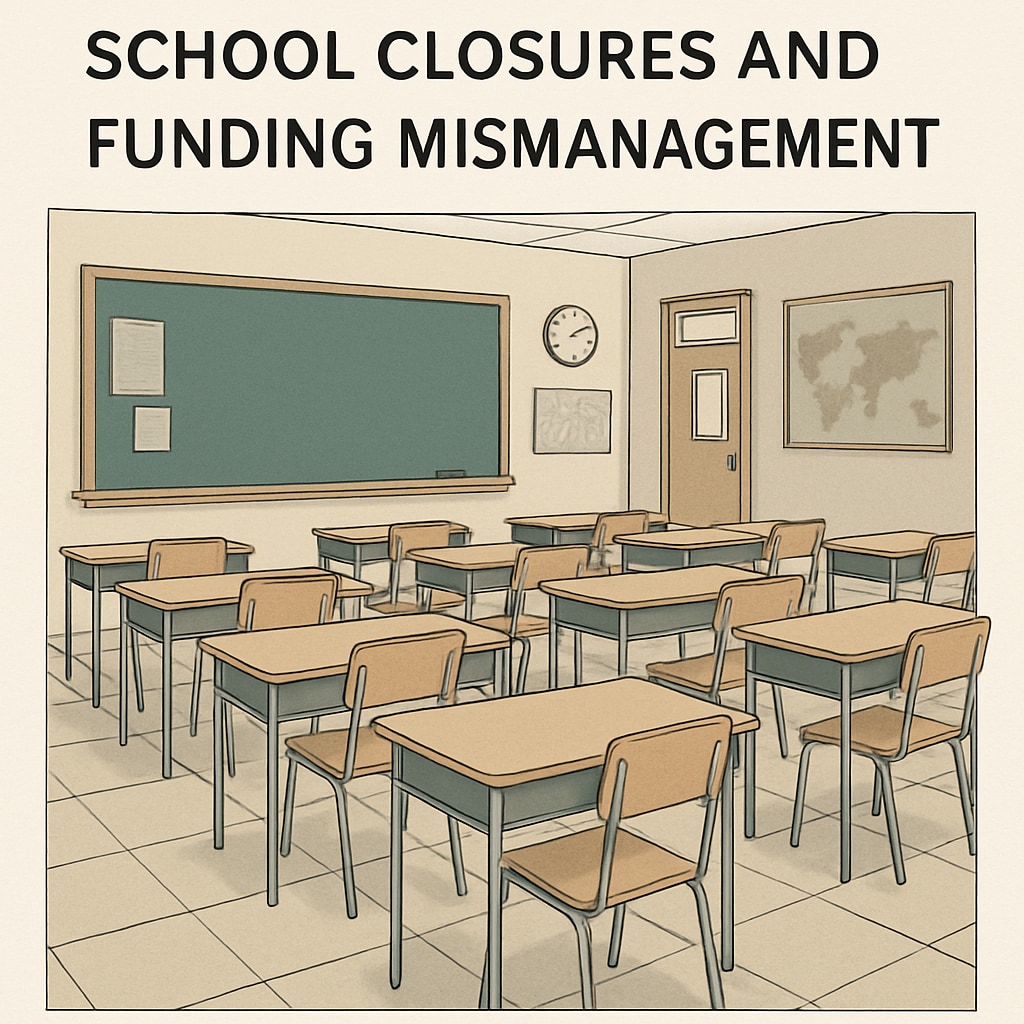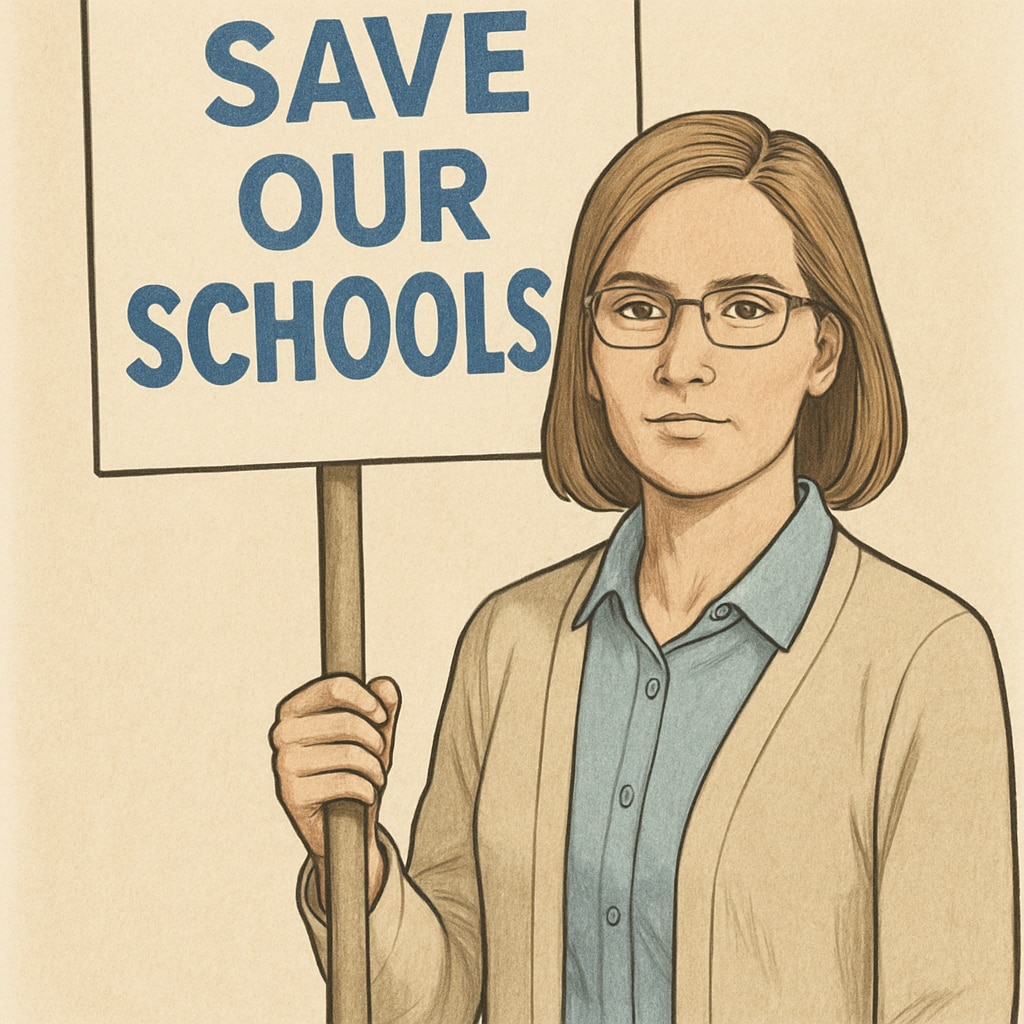Public education in the United States is facing a crisis, with organizations like “Stand For Children” accused of redirecting funds originally allocated for public schools into private institutions. This strategic reallocation under misleading legislative reforms has led to widespread school closures, teacher layoffs, and allegations of fraud and resource misuse. The question looms large: is this the future of education reform, or simply a betrayal of public trust?

The Shift from Public to Private: A Dangerous Trend
In recent years, legislative frameworks have made it easier for organizations like “Stand For Children” to divert public education funding into private entities. These reforms are often disguised as efforts to improve educational quality and provide parents with more school choices. However, the reality paints a far darker picture. Public schools, particularly those in underfunded districts, find themselves struggling to stay afloat, with reduced budgets leading to program cuts, staff reductions, and even closures.
For example, charter schools and private educational organizations receive substantial funding, often without the stringent oversight applied to public schools. As a result, these private institutions sometimes misuse resources or fail to deliver promised outcomes. According to Britannica, the charter school model has faced criticism for its lack of accountability, which in turn undermines the foundational principles of public education.

Impact on Teachers and Students
As a consequence of funding redirection, public school teachers often bear the brunt of the damage. Many face layoffs, salary freezes, or the elimination of essential benefits, leading to decreased morale and an exodus from the profession. Students, too, suffer, as class sizes balloon and extracurricular programs disappear due to budget constraints.
Moreover, the push toward privatization disproportionately affects low-income communities, where public schools serve as essential lifelines for educational equity. For example, in districts where public schools shut down, families are forced to turn to private institutions that may charge tuition or fail to meet the same standards. This creates a cycle of inequality, eroding the very foundation of accessible education.
A Call for Accountability
To address these issues, policymakers and educators must demand greater transparency and accountability from organizations that receive redirected public funds. Legislative reforms should prioritize the needs of public education over the profit motives of private entities. Additionally, independent audits and stricter oversight mechanisms could help ensure that funds are utilized effectively and ethically.
As a society, we must ask ourselves whether the privatization of education truly serves the public interest. Is it worth sacrificing the stability and accessibility of public schools in exchange for promises that often go unfulfilled? The answer lies in holding these organizations accountable and reaffirming our commitment to the principles of public education.
In conclusion: The actions of organizations like “Stand For Children” highlight a troubling trend in education funding privatization. By redirecting resources away from public schools, they jeopardize the future of equitable and accessible education. It’s time to demand accountability and protect the foundation of public education for generations to come.


